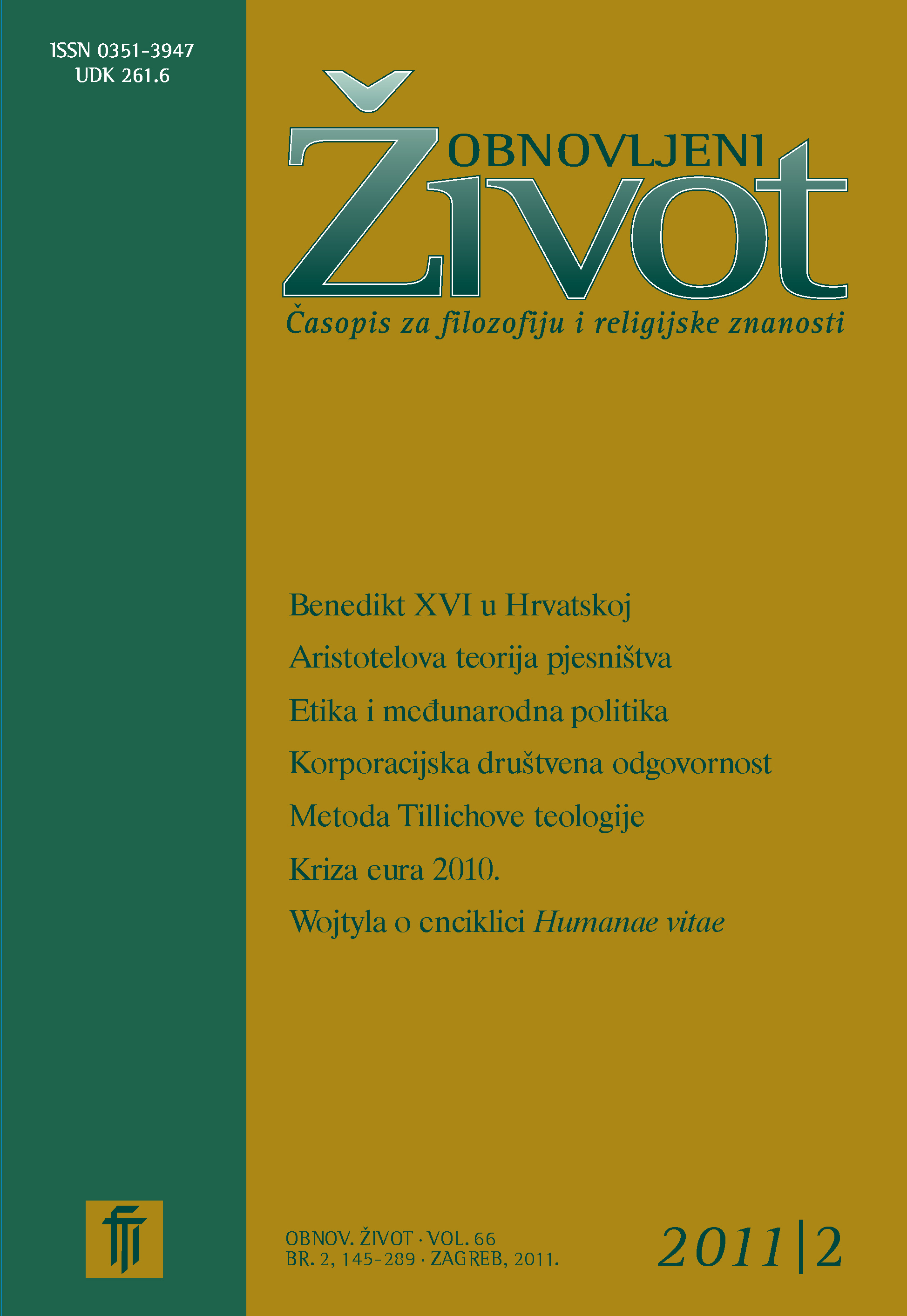Perihoresis - An Old Concept with New Trends
Keywords:
perihoresis, The Most Holy Trinity, divine person, communionAbstract
It is a known fact that Christian theology, since its earliest beginnings, contained non- biblical, even totally profane, concepts. Some of these played key roles in certain fields of theology for various lengths of time. One such concept is »perihoresis« which was used firstly in Christology to denote the unity of Christ's divine and human natures, then in trinitarian theology to denote the mutual penetration and indwelling of the divine persons in the Trinity. This essay attempts to trace the theological development of the concept »perihoresis« through history since its introduction into theology through the Church Fathers and subsequent theologians with reference to various aspects of meaning stressed in vari- ous periods. It is interesting that the concept almost disappears from theological writings in the Middle Ages and survives only as a theological concept in schools. And so it is even more thought-provoking that interest in the concept is reawakened in the field of trinitarian theology in the latter decades of the twentieth century. One might say that the concept is experiencing a renaissance in postmodern times. Contemporary trinitarian theologians, not only inescapabley use the term, but they build the basic features of their theology on it. The article presents, in brief, the most exem- plary of them and highlights their particular usage and application of the term »perihoresis«. This paper attempts to examine the renewed interest in the concept in postmodern times and its shift toward pluralism, primarily because of the responsibility of contemporary trinitarian theologians to render Christian theology relevant in their time. Herein lies the great significance of their theology.
Downloads
Published
Issue
Section
License
Jednom prihvaćeni članak obvezuje autora da ga ne smije objaviti drugdje bez dozvole uredništva, a i tada samo uz bilješku da je objavljen prvi put u Obnovljenom životu. Uredništvo će obavijestiti autora o prihvaćanju ili neprihvaćanju članka za objavljivanje.
Članci objavljeni u časopisu se, uz prikladno navođenje izvora, smiju besplatno koristiti u obrazovne i druge nekomercijalne svrhe.


